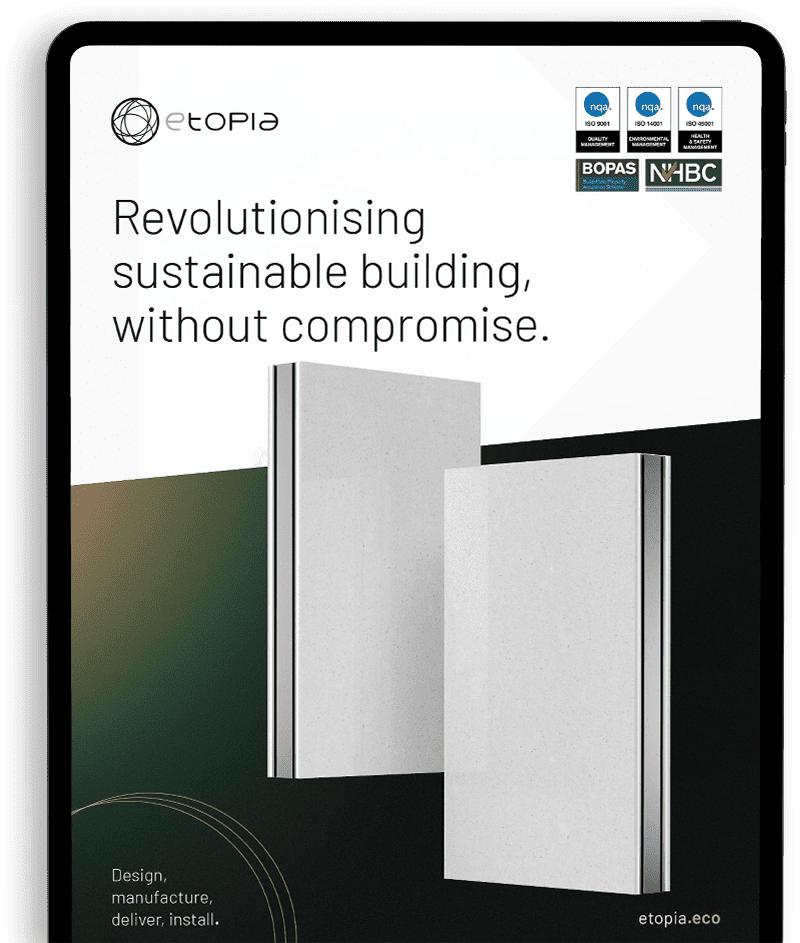Key Takeaways from the Lords Parliamentary Review by Lord Moylan
Lord Moylan, I believe, did an excellent job summarizing the key problems of delivering MMC and understanding the key challenges to date. He has criticized the governments approach to date of not properly analyzing the metrics of their implemented policies and recognizes the challenges the industry faces.
He writes that “We have limited confidence that a coherent plan to encourage the use of MMC is in place and, owing to the absence of its publication, have found it challenging to scrutinize the Government’s activity and spending. Given its own admittance that MMC is a central requirement to deliver on the Government’s housing ambitions, and the amount of money it is investing in this sector, this position is very disappointing.”
Key Recommendations by Lord Moylan include reforms to data publication, efficient use of funds, reallocation of support, making products more easily insurable, soft levers like the FHS to drive the shift to more sustainable development. We think that all these suggestions are very sensible and are very needed to make MMC housing a success in the UK.
We have summarized Lord Moylans key points below and his conclusions.
Publishing Data
The Government should, in the first instance, publish the data it has already committed to in the Homes England Strategic Plan, and in its response to the House of Commons’ Housing, Communities and Local Government Committee, by the end of March 2024. In particular, the Government should publish data on the share of supported completions using MMC in the Affordable Homes Programme as soon as possible.
Increasuing the proportion of MMC required in the Affordable homes Program (AHP)
The Government should consider increasing the proportion of MMC required in the AHP strategic partnership programme to contribute further to scaling up MMC.
Limiting the AHP to Cat 1 and Cat 2.
The Government should include a stipulation for housing associations to use a minimum proportion of Categories 1 and 2 MMC within its overall MMC usage, as part of the programme from 2026.
The Government should publish data on the breakdown of the categories of MMC that housing associations have used to achieve the 55 per cent premanufactured value. At the latest, this data should be published as part of the Homes England annual report for 2023/24.
The Government should make MMC categories 6 and 7 ineligible for consideration when calculating the pre-manufactured value of homes delivered through the Affordable Homes Programme.
On the Loal Authority Accelerated Construction Program
The Government should publish the outcomes of the Local Authority Accelerated Construction programme, in particular the number and type of MMC homes delivered through this investment.
On Standardization in MMC
The Government should ensure that its approach to developing standards does not stifle innovation. The work may benefit from setting out how new products should be assessed for safety and minimum requirements for interoperability, rather than dictating a specific approach to construction.
On Safety and assurance
Building regulations in the UK take an outcomes-based approach, and we agree that it is not appropriate or necessary to provide additional building regulations for MMC homes. Nonetheless, the Approved Documents should be updated to provide guidance on assessment of MMC methods as they currently do for traditional construction.
On Access to warranties and insurance
We were particularly disappointed by the attitude of insurance providers and the warranty providers towards MMC. The extensive time periods it can take to obtain warranties and the reticence of insurance providers to accept compliance with building regulations as sufficient is having a detrimental impact on the delivery of MMC homes. As those with the widest view across the industry, warranty and insurance providers should act themselves to compile and share the data they need. The Government should set out this expectation clearly to the sector.
The Government should, by the end of March 2024, publish an update on the research that it is conducting to build an evidence base on MMC.
We further note that its MMC Taskforce, which was expected to take forward work on data and standards, has never met. The Government should explain the justification for abandoning this approach and set out how the promised funding has been used or reallocated.
On Soft levers
Higher energy efficiency requirements could incentivise greater usage of MMC, particularly in Categories 1 and 2. We welcome the launch of a technical consultation on the Future Homes Standard. The Government should ensure it responds to the consultation by the end of June 2024 and, in that response, provide a final implementation date for the Future Homes
Standard in 2025.
On Stimulating the market
The Government should undertake an assessment into whether providing direct loan financing or support through the AHP is the most effective way to support the establishment of new MMC companies and their research and development. If MMC is found to be more expensive than traditional building methods, the Government should demonstrate whether these programmes are the most efficient use of public funds.
Volumetric MMC housing is successfully delivered in other countries. The Government should ensure that its procurement practices do not limit the ability of successful MMC companies from around the world in moving into the UK market.
On Training
The Government should amend the specified content of construction apprenticeships to mandate modules on MMC which, at a minimum, provide an understanding of how MMC and traditional construction methods interact on site.
Lord Moylan’s Conclusions.
“We believe that modern methods of construction can have an important place in UK housebuilding, especially in the context of an ageing skilled workforce and the inefficiency of traditional housebuilding methods. This is based on the evidence we have heard about its successful use in the non housing construction sector, its widespread use in countries overseas and its potential to drive gains in efficiency and productivity identified by Homes England and others. We welcome the Government’s wish to see these new methods of construction prosper.
But we came away from our inquiry with the impression that the Government had too easily accepted that undirected and nonstrategic investment of public money was the obvious way of providing this assistance. We say that because the Government has not set out clear objectives for the investments and funding it provided. Nor did Homes England give us any clear metrics as to how success (however defined) was to be measured and over what timescale. The fact that Homes England cannot tell us what, in detail, their “Five S” strategy consists of is troubling, especially if it indicates that there is not much substance behind the strapline.
If the Government did have a clear strategy and a good understanding of how the industry operates, it could play an important role in supporting the growth of modern methods of construction. For example, the Government should be finding ways to encourage successful modular housebuilders from overseas to establish themselves in the UK.
We also recognise the boost to supply achieved by the Government’s requirement for a proportion of social housing to use MMC but think that this could better target increased innovation by eliminating Categories 6 and 7 from calculations.
In our view, the future of MMC is closely linked to the standards that will be set by the Future Homes Standard.
It is possible that real barriers exist in the form of resistance by planning officers and undue risk aversion on the part of warranty providers, insurance companies and banks. Our short inquiry did not establish clear evidence to make that case, but we believe the Government should look more carefully at how these parts of the housebuilding ecology are working, as well as taking a greater interest in overseas examples of success with modular construction.”
Download a copy of our brochure.

CONTACT ETOPIA
Ready to talk about your next build?
If you have any questions at all please reach out to us via the form. We’re always happy to talk.
Other enquiries can be made to [email protected].
[gatormailsmartform id=”31″]


